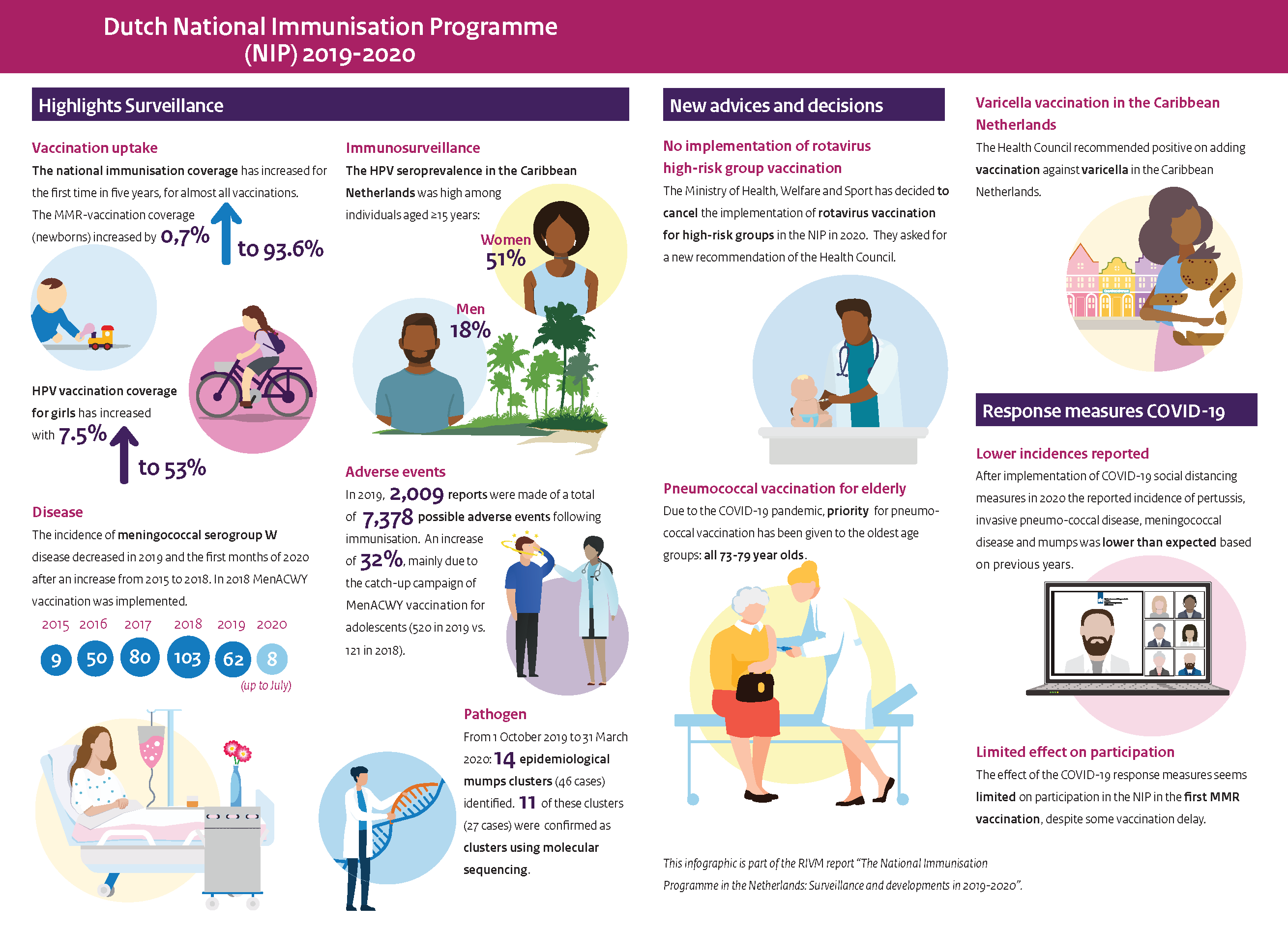
National immunisation coverage has increased for the first time in five years, for almost all vaccinations. For children born in 2017, vaccination coverage against mumps, measles and rubella (MMR) increased by 0.7% to 93.6%. National vaccination coverage for the HPV vaccination for girls, born in 2005, also increased by 7.5% to 53%. This has become apparent in the annual report on Surveillance and Developments of the National Immunisation Programme.
Few cases of diseases because of high vaccination coverage
In 2019, few reports were received from people who contracted a disease against which the National Immunisation Programme vaccinates. There were no reports for diphtheria, tetanus, rubella, and polio. As in previous years, the number of reports was low for Haemophilus influenzae (Hib) type b: (39). The number of reports of whooping cough (6383), measles (84) and mumps (131) was higher than in 2018. The number of hepatitis B reports (1205) remained stable. The number of reports of meningococcal W disease (62) decreased in 2019 after an increase from 2015 to 2018.
From March to June 2020, fewer cases of whooping cough, invasive pneumococcal disease, meningococcal disease and mumps were reported. During this period, coronavirus measures, such as social distancing and closure of schools, were in place.
22-week vaccination for pregnant women
At the end of 2019 the maternal whooping cough vaccination, also known as the 22-week vaccination, became part of the National Immunisation Programme. This vaccination protects the mother and her newborn child against whooping cough. In April and May 2020, the vaccination coverage of the 22-week vaccination is estimated at about 70%.
Pneumococcal vaccination for the elderly
In 2020, the intention was to offer pneumococcal vaccination to elderly 60, 65, 70 and 75 years of age. Due to the COVID-19 pandemic, however, the oldest age groups (73- to 79-year-olds) were given priority.
Delay introduction rotavirus vaccination
In April 2020, the Ministry of Health, Welfare and Sport decided to postpone the introduction of the rotavirus vaccination. This vaccination is for children who are at greater risk of becoming seriously ill. A new study showed lower vaccine-effectiveness estimates for high-risk infants than expected. The ministry asked for a new advise of the Health Council, which is expected in 2021.
Scientific developments
The report presents an overview of surveillance data and scientific developments of the 12 infectious diseases against which the Dutch National Immunisation Programme vaccinates. It also contains information about infectious diseases that are not (yet) included in the National Immunisation Programme, but for which a vaccine is available, such as chickenpox and shingles. RIVM publishes this report every autumn.
